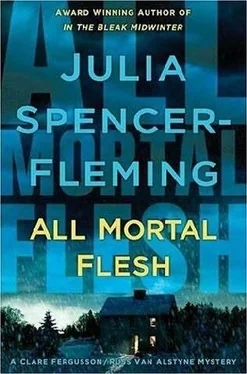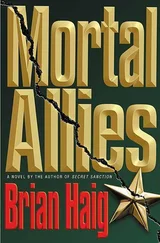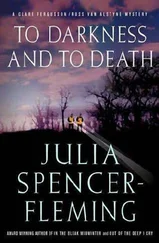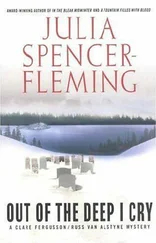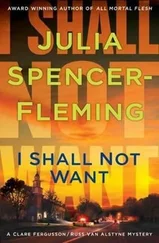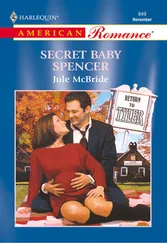“Fixing time of death was difficult. The house was cool to begin with, and according to Officer McCrea, the mudroom door was open from the time the body was discovered until I got there. Lividity was less useful than usual because of the significant blood loss. I can narrow it down to a twenty-four-hour window between roughly Sunday afternoon and Monday afternoon, but I can’t be more precise than that.”
“What about the…” MacAuley waved his hand over his face.
The ME’s wince was faint, but noticible. “The postmortem facial wounds? They are numerous, all delivered within, I estimate, a half hour of death. Some were quite shallow. Tentative, one might say. Others were deep and decisive. The victim’s body was also pierced in several places, a fact not readily apparent from the initial evaluation at the crime scene. These postmortem wounds to the torso were stabbing rather than slashing wounds, and were themselves almost completely bloodless. Again, not readily apparent until the victim’s blood-soaked clothing had been removed.”
“So… what sort of assailant are we talking about here?” MacAuley asked. “Someone who hated Mrs. Van Alstyne personally? Someone who saw her as a stand-in for something else they hated?”
“I’m a pathologist, not one of these so-called profilers,” Dr. Dvorak said. “And I’m not all that convinced you can tell what’s going on in someone’s mind based on the pattern of assault. The body moves and reacts in ways the mind cannot control. However, having said that, in my opinion, we have here an assailant who was technically adept enough to kill with one stroke, but who was inexperienced with death itself.”
“What does that mean?” MacAuley asked.
“If I may continue,” the doctor said, giving the deputy chief a measured look. “The postmortem injuries strike me as a sort of experimentation, rather than deliberate mutilation. Seeing what happened when flesh was sliced or stabbed.”
The chief shuddered. Dr. Dvorak kept his eyes on him. “Often in cases where the killer enjoys having control over a body, he will treat it as a child treats a doll, moving it about, removing clothing, inserting objects into it, marking it.”
It was a gruesome image, but Mark could picture exactly what the pathologist was getting at. He had seen Maddy play with her Barbies and baby dolls in precisely that way, right down to coloring them with Magic Markers.
“In this case,” Dvorak continued, “the best analogy might be… a boy poking at a dead bird.”
MacAuley nodded. “So… someone familiar with knife fighting but not with actually killing someone.”
“In my opinion. Which may or may not be worth the paper it’s written on.” Dvorak looked at the folder lying in front of him with distaste. “The one other solid thing I can contribute is the murder weapon.”
The chief sat up straighter. “From knife cuts? It usually takes at least a week for the state crime lab to get back on weapons.”
“That’s right. Which is why I bypassed the state lab. I e-mailed the photos to a friend in Virginia and let him know how important it was to me. He got back to me right before I called you.” The doctor removed a sheet of paper from the folder and slid it across the desk. It was a printed version of a Web-page photo, showing a nonreflective, efficiently lethal knife.
“I’m sorry about the poor quality of the print. As you can see, it’s a K-Bar, and according to my friend, it’s mostly found on the secondhand or military surplus market, because-”
“This is my knife,” the chief said.
“It-what?” Dr. Dvorak stared at him. Then his face softened. “It’s not an uncommon style, Russ.”
“I know it’s not,” the chief said impatiently. “It used to be marine issue, and everybody in the army bought ’em because they were so much better than the crap knives we were issued. I kept mine when I retired. This is the same knife that’s missing from my barn.”
“Russ,” MacAuley said, “the doc’s right. I mean, my hunting knife’s from the army-navy surplus, and it looks a lot like this-”
“I’m not having guilt-induced hallucinations, Lyle. Think. The murder weapon was a K-Bar. My K-Bar is missing. The last time I can positively place it on my workbench would be a few days after hunting season ended. Someone could have gotten into the barn easy and taken it.” He leaned forward. “Maybe someone in that car the Tracey kid saw in the driveway Sunday.”
“If the perp broke into your barn to get a weapon, why the hell didn’t he take your Weatherby or your shotgun?”
“Because it’s a lot harder to sneak up on someone with a rifle,” Mark said.
The chief nodded at him. “Exactly.”
“Okay,” MacAuley said. “I’m willing to go with it. I just want to point out that whether it’s the chief’s knife or not, it’s probably at the bottom of the Kill right now.”
Mark grimaced. A lot of things could disappear beneath the ice-crusted waters of the river.
“Mark, let’s have you get back on that list of released cons the chief dealt with.” The dep was standing, settling his hat on his head. “Thanks, Doc.”
Dr. Dvorak reached over the desk and shook MacAuley’s hand. The deputy chief clasped Mark on the shoulder and steered him out the office door. “Let’s give them a sec,” he said, once they were a few steps down the hall.
“Look,” Mark said, “about the released-con theory-”
“Track down their parole officers or their wardens. We’re looking for someone who had knife training while in the army, or who got in trouble for knife fighting inside. That shift switch you wanted? You got it. You’re on days starting now. Investigating, not patrol.”
The bump up in status that Mark had wanted so long flashed by, an irritating detail he had to hear before he got to what really mattered. “I want to spend some time looking into Reverend Fergusson,” he blurted out.
“What?” MacAuley held him at arm’s length. “What are you talking about?”
“Clare Fergusson. You told the chief yourself. She’s in the circle of suspects.”
“You mean back at the station? I was trying to crowbar some sense of discretion into the chief, for God’s sake. I don’t really think she’s a credible suspect.”
“Why not?”
MacAuley threw up his hands. “I don’t know. Because I know her, I guess. I just can’t picture it. I mean, okay, maybe she could possibly maybe get mad enough to lose it in a fit of temporary insanity. But cover it up? No way. She’d be signing a confession before you could finish Mirandizing her.”
“But think about it. She’s got the means-she did some sort of fancy survival training for helicopter pilots. She’s got the motive”-MacAuley shook his head, but Mark surged on-“she does, you know she does. You think the chief was ever going to divorce his wife?”
The deputy chief paused. “No.”
“Motive. And she had the opportunity-she was up in the mountains all alone for a week, including Sunday and Monday. She could have come down to the chief’s house, done the deed, and split before anyone saw her.”
“Durkee,” the deputy chief said, “I appreciate the level of thought you’ve put into this. That’s one of the things that tells me you’re going to have a great future as a cop. But the reverend is not a suspect. Put it aside. You’ll have more than enough to do compiling this list. Understand?”
“Yessir.” Mark tried to conceal his seething frustration. If the deputy chief spiked the investigation, that was it. No way was anyone going to look at the most likely suspect. Unless…
He thought of the now-crumpled letter from the state police waiting at home on his dresser. Unless he could find someone with the authority to take the case from MacAuley. Someone who wouldn’t be swayed by the chief’s friendship with the priest.
Читать дальше
